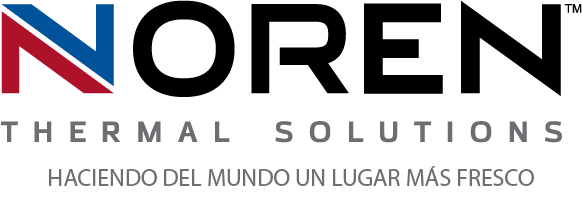 In their most common applications, modern heat exchangers are typically valued for their ability to significantly streamline the electrical cooling process. They accomplish this by making use of an eco-friendly cooling fluid (such as water) and its ability to absorb and transfer heat efficiently. This heat transfer process reduces the amount of energy and the frequency of maintenance that companies need to invest in to maintain to their electrical cooling capabilities. In addition to electrical cooling, efficient thermal management is also an essential part of other important industrial processes, such as wastewater treatment, where heat exchangers have become an increasingly more important addition to the process.
In their most common applications, modern heat exchangers are typically valued for their ability to significantly streamline the electrical cooling process. They accomplish this by making use of an eco-friendly cooling fluid (such as water) and its ability to absorb and transfer heat efficiently. This heat transfer process reduces the amount of energy and the frequency of maintenance that companies need to invest in to maintain to their electrical cooling capabilities. In addition to electrical cooling, efficient thermal management is also an essential part of other important industrial processes, such as wastewater treatment, where heat exchangers have become an increasingly more important addition to the process.
The value of industrial wastewater treatment
The growing implementation of industrial wastewater treatment in most industries is the product of several different factors. Over the last several decades, companies have been under increasing pressure to find ways to make their operations more environmentally friendly. In the quest to lower their environmental footprints, companies have continued to implement more efficient and advanced processes, including the treatment of wastewater before releasing it into the environment. Wastewater treatment is an essential but complicated process, and it requires a continuous application of heat to be successful. This creates an important opportunity for companies to streamline the process by utilizing specially designed heat exchanger solutions.
Enhancing the process with heat exchangers
The basic operation of a heat exchanger is to facilitate a cooling fluid’s ability to absorb heat, and to allow the fluid to transfer the heat after it has absorbed it. In an electrical cooling application, this allows the heat exchanger to consistently keep an electrical enclosure cool by preventing waste heat from accumulating. In other applications, including wastewater treatment, this process can be extended to allow the heat exchanger to transfer waste heat where it can be repurposed. By supplementing the heat required to maintain consistent wastewater treatment, companies can significantly lower their overall operating costs while also maintaining more eco-friendly practices.
Creating additional eco-friendly advantages
The ability to transfer heat on a consistent and reliable basis has been the cornerstone of the many advantages that modern heat exchangers provide. As companies have utilized heat exchanger technologies for increasingly more thermal management processes, those advantages have continued to grow. This has been especially true in the realm of eco-friendly business practices, as heat exchangers have helped companies lower the footprints of most of their technological applications. For more information about why some companies use heat exchangers during wastewater treatment, call Noren Thermal Solutions in Taylor, TX, at 866-936-6736.







